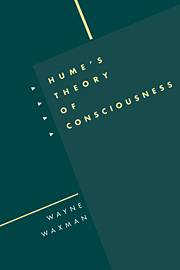Summary
This book is a perpetuation “of the time honored and conventional myth enshrined in textbooks that present David Hume as the notorious negative and destructive thinker” (Capaldi). Hume's contemporaries, nearly every major thinker since, and most philosophers today are believers in this “myth.” For them, as for me, Hume's importance as a philosopher derives from the challenge he levelled at rationalistic assumptions of the unrestricted validity of such notions as cause and effect, substance, space and time, and identity. They credit him further with developing the first thoroughgoing psychologistic skepticism, effectively reducing to associative imagination everything philosophers had formerly attributed to intellect. He is thus the first in a line of thinkers, extending through Kant, to treat the object of knowledge as its own construction, thereby shifting the focus of subjective philosophy from regulative principles of our experience of objects to constitutive principles of the objects we experience.
Why then have so many of those who ostensibly know Hume best turned their backs on the accepted view? The reasons are complex: the desire to re-examine orthodoxy and be original; Hume's elusiveness (he does not yield his secrets easily); developments like the rejection of subjectivism in twentieth-century philosophy which set the stage for those who would “rehabilitate Hume and make him one of our own; and recent trends in the history of philosophy which have transformed its methodology and focus.
- Type
- Chapter
- Information
- Hume's Theory of Consciousness , pp. xiii - xivPublisher: Cambridge University PressPrint publication year: 1994



